About the team
The Systems Neurology research group is led by associate professor and neurologist Rick Helmich. The group consists of a large variety of people, ranging from postdocs, PhD-candidates, MSc-students, and BSc-students. With backgrounds ranging from medicine, psychology, cognitive neuroscience, and molecular life sciences, we all aim to unravel the neural mechanisms that give rise to neurological symptoms.
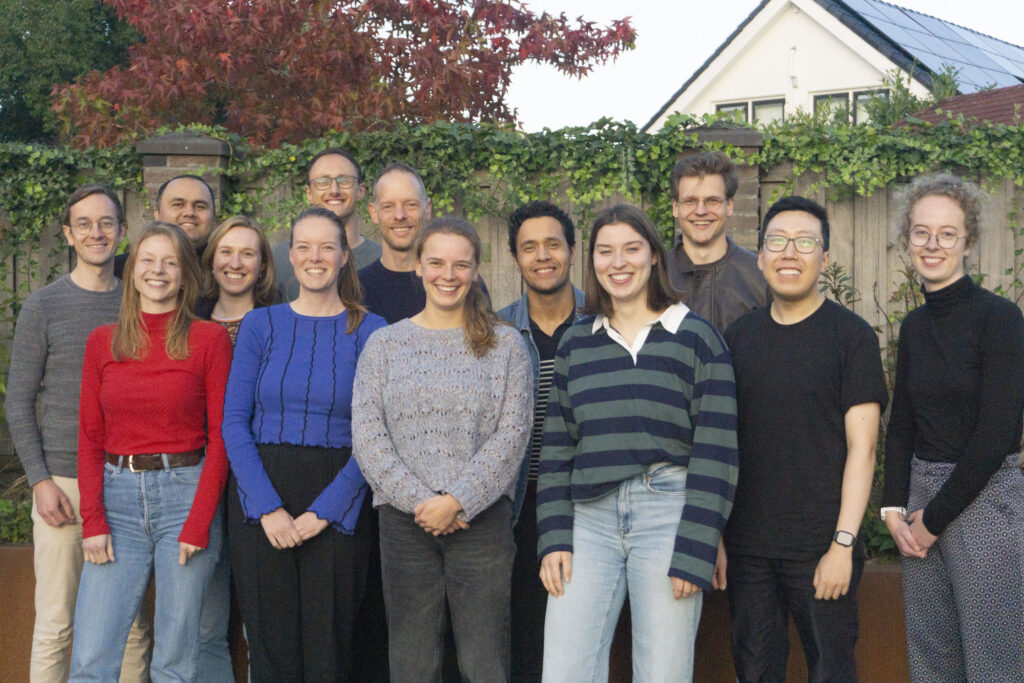
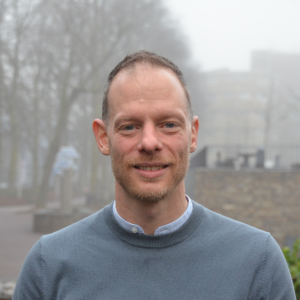
Rick Helmich
It is my passion to understand the cerebral mechanisms that lead to neurological diseases, and use these insights to develop new therapies for patients with movement disorders. I work as a neurologist and associate professor specializing in Parkinson’s disease and tremor disorders, both at the Radboud University Medical Centre and at the Donders Institute. I am very much inspired by clinical observations in patients, and use neuroimaging and neurophysiology to understand the underlying mechanisms. I am particularly intrigued by the profound effects of psychological stress on many neurological movement disorders, by the way patients can compensate for brain dysfunction, and by the different ways in which tremor can manifest itself.
Michiel Dirkx
Michiel Dirkx is a post-doctoral researcher at the Donders Centre for Cognitive Neuroimaging and a neurologist in training at the Radboud University Medical Centre.
I obtained my medical degree at the Radboud University Nijmegen in 2018, and my PhD thesis (“Neural mechanism of Parkinson’s tremor”) in 2020. Since 2020, I work as a post-doctoral researcher where I focus on the pathophysiology of movement disorders, especially tremor and Parkinson’s disease. For this, I use methods such functional MRI and electrophysiology (EMG/accelerometry), which I use for cerebral network analyses such as Dynamic Causal Modelling and a graph-theoretical methods.
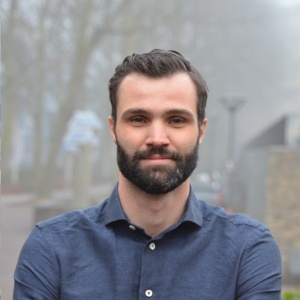
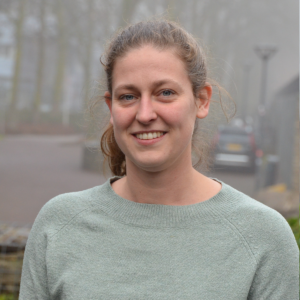
Marlous Verhulst
My name is Marlous Verhulst and I studied Technical Medicine at the University of Twente. During my graduation project I developed great interest in brain damage in patients after cardiac arrest and the long-term consequences of this damage. Therefore, I started my PhD at the University of Twente and Rijnstate Hospital in Arnhem in 2020. In collaboration with the Donders Institute, I research the predictive value of early MRI markers for long-term cognitive impairments in cardiac arrest survivors. In my free time I like to play tennis or go for a ride on my gravel bike on the Veluwe.
Kevin van den Berg
Kevin van den Berg obtained his medical degree at the Radboud university medical centre and subsequently started with a PhD-trajectory investigating Parkinson’s tremor.
Even before starting medical school in 2015, I was fascinated by neurology and neuroimaging. During the summer of 2018, I went to the National Institutes of Health (NIH) in the USA for a research internship. There, I investigated the role of the cerebellum in Parkinson’s tremor. Having obtained my medical degree in February 2022 at the Radboud university medical centre, I wanted to delve deeper into the underlying mechanisms of Parkinson’s tremor. As of March 2022, I started a PhD-trajectory investigating the role of the cerebellum in Parkinson’s tremor and the cerebral mechanisms behind Parkinson’s tremor progression. My ultimate goal is to become a neurologist specialized in movement disorders. In my free time, I try to obtain a good dose of exercise and (especially) music to maintain a healthy body and mind.
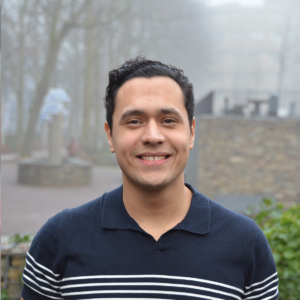
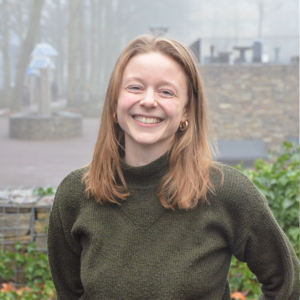
Franziska Goltz
I am Franziska and I joined Rick Helmich’s lab in 2023. Originally from a small village in Germany, I moved to Nijmegen in 2014, where I obtained my bachelor’s degree in Psychology and my master’s degree in Cognitive Neuroscience. In my research, I am interested in network neuroscience and understanding the healthy and pathological brain from that perspective, but I am also very passionate about music, music therapy and other non-pharmacologic treatment methods. With my research, I aim to improve our understanding of Parkinson’s disease (PD), how to treat PD effectively and how to support the life of people with PD the best way possible. In my PhD, I am very happy to bring my interests together and investigate the clinical effects of mindfulness based cognitive therapy and the cerebral mechanisms underlying stress (reduction) in people with PD.
Nienke Timmermans
After I obtained my master degree in Technical Medicine in 2023, I started as a PhD-candidate at the at the Radboud University Medical Center in collaboration with the Donders institute. During my PhD, I will focus on quantifying Parkinson’s tremor in daily-life. For this, I will mainly use the large amount of sensor data that was collected with a smartwatch during daily-living as part of the Personalized Parkinson Project. I hope that we can develop more sensitive outcome measure for clinical trials in PD, and obtain new insights into tremor pathophysiology, ultimately leading to improved treatment for Parkinson’s tremor. In my free time I enjoy running, cycling, swimming, and reading.
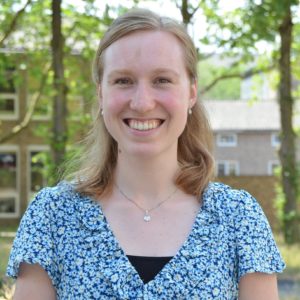
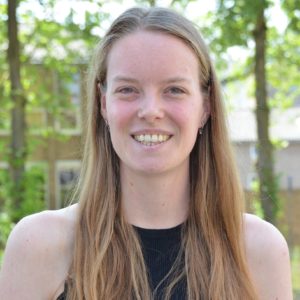
Iris Visser
I am Iris and I finished my master’s degree in Technical Medicine at the University of Twente in 2023. During my graduation internship, I focused on ultrasound measurements of the optic nerve in comatose patients after cardiac arrest on the intensive care. This sparked my interest in research and neurology specifically. In June 2023, I started my PhD at the Canisius-Wilhelmina Hospital in Nijmegen in collaboration with Radboud University Medical Center and the Donders Institute. I will investigate whether treatment success of botulin toxin injections in patients with dystonic tremor syndrome can be predicted by clinical and electrophysiological tremor characteristics. Furthermore, I will explore whether muscle ultrasound might be able to guide these injections.
Thomas Oosterhof
After obtaining my medical degree, I gained clinical experience in Pulmonary Medicine, Internal Medicine, and Neurology. This diverse background enables me to explore the interconnections between bodily and neurological processes, with a particular focus on the brain. In my PhD research, I am investigating whether exercise can delay or even prevent the onset of Parkinson’s disease, as part of the world’s first lifestyle prevention trial in Parkinson’s disease called the Slow-SPEED study. In this study, we aim to encourage participants to exercise with a motivational smartphone app while collecting both symptomatic and biological markers, including MRI imaging. With these MRI scans, we aim to reveal the effects of exercise on brain integrity and function, while also gaining deeper insights into the underlying disease progression of prodromal Parkinson’s disease.
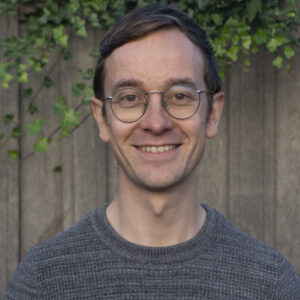
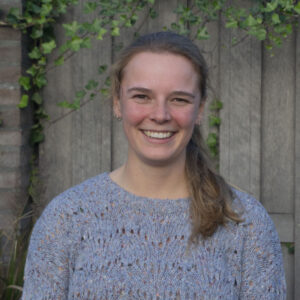
Franka Goossens
My name is Franka and I studied Forensic Science and Biomedical Sciences at the University of Amsterdam. In 2024, I started as a PhD-candidate at the Radboud University medical Center in collaboration with Rick Helmich’s lab at the Donders Institute. During my PhD, I will focus on a pharmacological intervention for freezing of gait in people with Parkinson’s disease. For this research, I will perform gait- and (f)MRI analysis to, hopefully, further unravel the mechanisms underlying freezing of gait and identify a new pharmacological approach for treating freezing of gait. In my free time, I enjoy working out, being in nature and experimenting with fermenting food.
Carlos Sandoval Puentes
I obtained my Bachelor’s degree in Biomedical Engineering in Mexico, and then moved to Nijmegen to pursue a Master’s degree in Cognitive Neuroscience, with a specialization in Natural Computing and Neurotechnology. Currently, as a Research Assistant in the Systems Neurology Lab, I focus on applying data analysis techniques to better understand the progression of Parkinson’s Disease, with a particular emphasis on tremor.
I research the dopamine responsiveness profile in patients with resting tremor by analyzing fMRI data and clinical scores. I employ methods such as Dynamic Causal Modeling and classification algorithms to predict individual patients’ responsiveness profiles. Ultimately, I aim to contribute to improving tremor treatment through more personalized approaches.
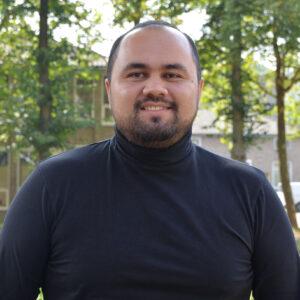
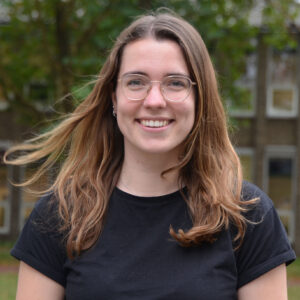
Colette Reniers
In 2023, I joined Rick Helmich’s lab, where I am able to build on my interest in neurodegenerative diseases. During my bachelor’s studies, my interest in neurological movement disorders was triggered when I worked on evaluating the effect of levodopa use on serum AADC enzyme activity in Parkinson’s disease. As I started my Cognitive Neuroscience master’s program, my interest evolved towards MRI during my internship at the DCC. This shift in focus has led me to my current research, where I aim to identify imaging biomarkers in spinocerebellar ataxia, a rare genetic movement disorder. My work now centers on finding imaging biomarkers that are sensitive to small, yet clinically significant, changes over time, which could be used for better tracking of disease progression and therapeutic responses.
Kenan Steidel
During medical school and general neurology training, I developed a fascination with neurodegenerative diseases and movement disorders. Training at the University Hospital of Marburg under David Pedrosa and Lars Timmermann allowed me to gain valuable experience in the specialized care of patients with movement disorders, both with and without deep brain stimulation (DBS). These experiences, combined with observing the clinical consequences of neurodegeneration and patients’ coping mechanisms, fueled my interest in research.
My primary research interest is to combine functional imaging modalities, such as PET and fMRI, to investigate the neuronal mechanisms underlying motor and non-motor deficits in Parkinson’s disease (PD) and the therapeutic effects of DBS. After completing the neurological portion of my residency in July 2024, I am excited to continue advancing my expertise in neuroimaging under Rick’s supervision.
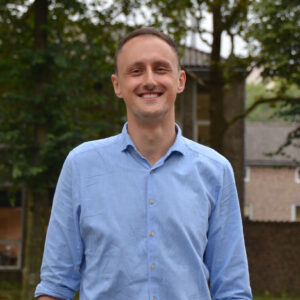
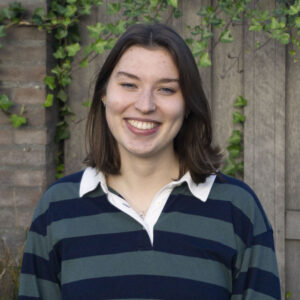
Laura Schinkel
My name is Laura, and I have a background in Psychology (BSc) and Neurobiology (MSc). In 2024, I joined Rick Helmich’s lab for my master’s internship, driven by my interest in neurodegenerative diseases and movement disorders. During this time, I explored how acute stress influences functional brain connectivity in Parkinson’s Disease. After completing my master’s, I continued as a research assistant, investigating whether a wearable orthosis that dampens joint movement can help reduce tremor in people with Parkinson’s Disease. The study combines electrophysiology with accelerometry to provide unique insights into the role of sensory feedback loops in tremor and its suppression, which aligns with my interest in understanding the underlying mechanisms of tremor.
Andrew Vo
Hoi, ik ben Andrew! I started as a postdoc in the Systems Neurology group in 2025. Before moving to the Netherlands, I completed my doctorate at the University of Western Ontario and continued by training at the Montreal Neurological Institute in Canada. My current research focuses on modelling functional brain changes in Parkinson’s disease using neuroimaging and exploring the potential applications of non-invasive ultrasonic brain stimulation for addressing motor symptom severity.

